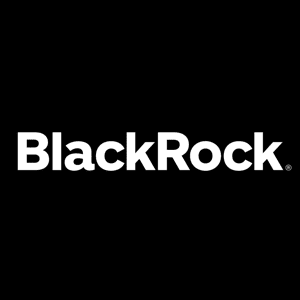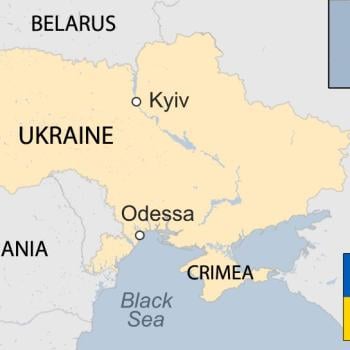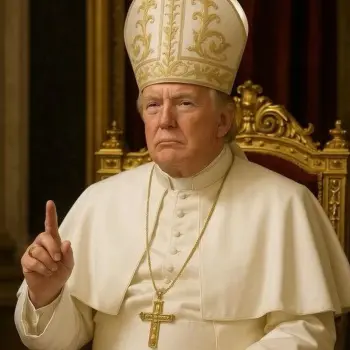 For I don’t know how many years, I have been somewhat of an environmental and socially responsible investor. Large, financial firms on Wall Street have so far been resistant to the clarion call, issued especially by scientists, that the world needs to do something about man-made climate change. But it appears the tide is about to change.
For I don’t know how many years, I have been somewhat of an environmental and socially responsible investor. Large, financial firms on Wall Street have so far been resistant to the clarion call, issued especially by scientists, that the world needs to do something about man-made climate change. But it appears the tide is about to change.
Wall Street’s BlackRock is the largest financial brokerage in the world, with $7 trillion in managed assets. BlackRock’s CEO Larry Fink recently said in his annual letter to its chief executives, “Climate change has become a defining factor in companies’ long-term prospects.” He predicted that because of this recent change, “awareness is rapidly changing, and I believe we are on the edge of a fundamental reshaping of finance.”
In a separate letter to BlackRock clients, Fink said that BlackRock will be exiting environmentally risky investments, including coal mining and production. He also said BlackRock will create new investment products that screen out fossil fuels. Fink, who has worked in finance for four decades, explained that he does not approach the increasing problem of climate change as an environmentalist, but as a capitalist with a responsibility to his client investors. He said a generational change is occurring in which young people get it about global warming and want something done about it.
Fink told CNBC yesterday, “We need to have an organized plan. We,” referring to BlackRock, “are not running away from hydrocarbons. We believe they play a role. We believe natural gas plays a very large role in the energy transition. We believe this is a process.”
Fink explained, “We don’t have a Federal Reserve to stabilize the world like in the five or six financial crises that occurred during my 40 years in finance. This is bigger, it requires more planning, it requires more public and private connections together to solve these problems.”
BlackRock just joined Climate Action 100+, a group of 370 global investors that collectively manage a staggering $41 trillion in assets. Their goal is to convince the largest emitters of greenhouse gases to reduce their carbon footprint.
Pope Francis is a big advocate of renewable fuels, such as solar and wind power. He has been meeting with many of the world’s leading business executives, including Larry Fink, to convince them of this pressing need.
America’s largest financial institutions are under increasing pressure from investors to go green despite President Trump’s administration going the other direction by relaxing environmental regulations in favor of business. But I think this direction will be seen as folly years from now. Renewable energy, such as that derived from solar and wind, is growing and creating many jobs worldwide. If the U.S. does not promote this, it will be caught behind many other nations who are leading the way in emphasizing alternatives to the burning of fossil fuels. Already, the U.S. is way behind several advanced nations in their pursuit of mass transit, such as high-speed trains. Such developments reduce auto emissions which contribute nearly 50% to global warming.
The Bible condemns human destruction of planet earth. I have written multiple times about this, both on my blog and in books. For example, the great Prophet Isaiah has a portion in the book by his name, which biblical scholars call “the little apocalypse.” They thereby liken it to the Bible’s last book, the Book of Revelation. (The word “revelation” is the translation of the word apocalypse in the Greek text.)
Isaiah predicts that on the eschatological day of the LORD (“On that day” in Isa 24.21; 26.1; 27.1, 12), “The earth lies polluted under its inhabitants; for they have transgressed laws, violated the statutes, broken the everlasting covenant” (Isa 24.5 NRSV). What is the everlasting covenant?
When God destroyed the earth with a flood in the days of Noah, and afterwards the waters receded and Noah and his family exited the ark, we read, “Then God said to Noah and to his sons with him, ‘As for me, I am establishing my covenant with your and your descendants after you, and with every living creature that is with you, . . . I establish my covenant with you, that never again shall all flesh be cut off by the waters of a flood, and never again shall there be a flood to destroy the earth.’ God said, ‘This is the sign of the covenant that I make between me and you and every living creature that is with you, for all future generations; I have set my bow in the clouds, and it shall be a sign of the covenant between me and the earth. . . . When the bow is in the clouds, I will see it and remember the everlasting covenant” (Genesis 9.8-9, 11-13, 16).
The book of Revelation foretells concerning the end of the age, the eschatological day, that the last of seven angels will sound a trumpet, and then there will be “loud voices in heaven saying, ‘The kingdom of the world has become the kingdom of our Lord and his Messiah, and he will reign forever and ever'” (Revelation 11.15). Then 24 elders of heaven exclaim, “We give you thanks, Lord God Almighty, who are and who were, for you have taken your great power and begun to reign. The nations rages, but your wrath has come, and the time for judging the dead, for rewarding your servants, the prophets and saints and all who fear your name, both small and great, and for destroying those who destroy the earth” (vv. 16-18).
So, the Bible proclaims that human beings will be held responsible for how they have treated the earth, which is God’s creation. This injunction should cause us humans everywhere to be sober-minded by being responsible stewards of God’s creation.












